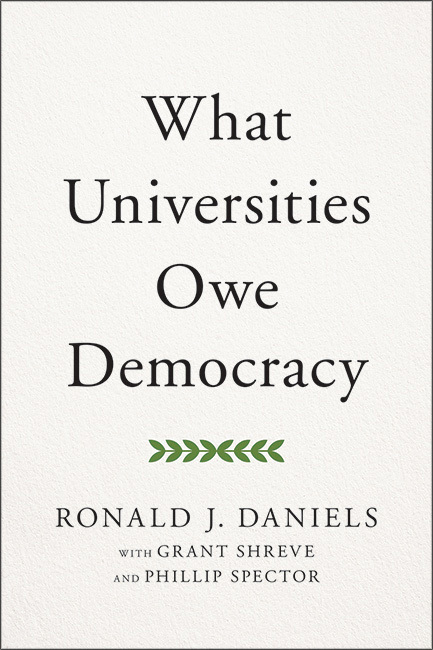Rob Johnson talks with Johns Hopkins University president Ronald J. Daniels about his new book, exploring how institutions can get back on course and rebuild public trust.
Universities play an indispensable role within modern democracies. But this role is often overlooked or too narrowly conceived, even by universities themselves. In “What Universities Owe Democracy”, Ronald J. Daniels, the president of Johns Hopkins University, argues that—at a moment when liberal democracy is endangered and more countries are heading toward autocracy than at any time in generations—it is critical for today’s colleges and universities to reestablish their place in democracy.
Drawing upon fields as varied as political science, economics, history, and sociology, Daniels identifies four distinct functions of American higher education that are key to liberal democracy: social mobility, citizenship education, the stewardship of facts, and the cultivation of pluralistic, diverse communities. By examining these roles over time, Daniels explains where colleges and universities have faltered in their execution of these functions—and what they can do going forward.
Looking back on his decades of experience leading universities, Daniels offers bold prescriptions for how universities can act now to strengthen democracy. For those committed to democracy’s future prospects, this book is a vital resource.


